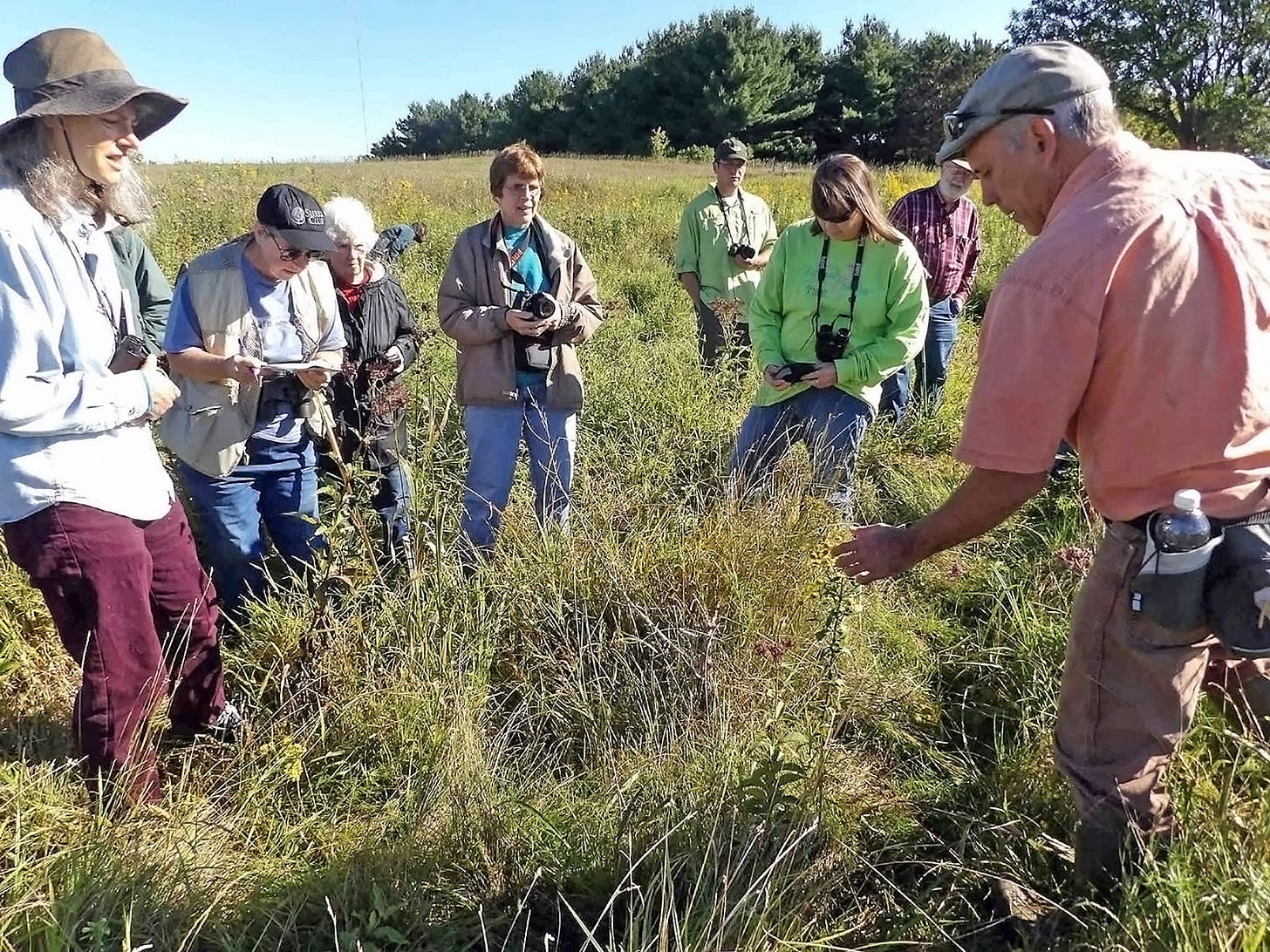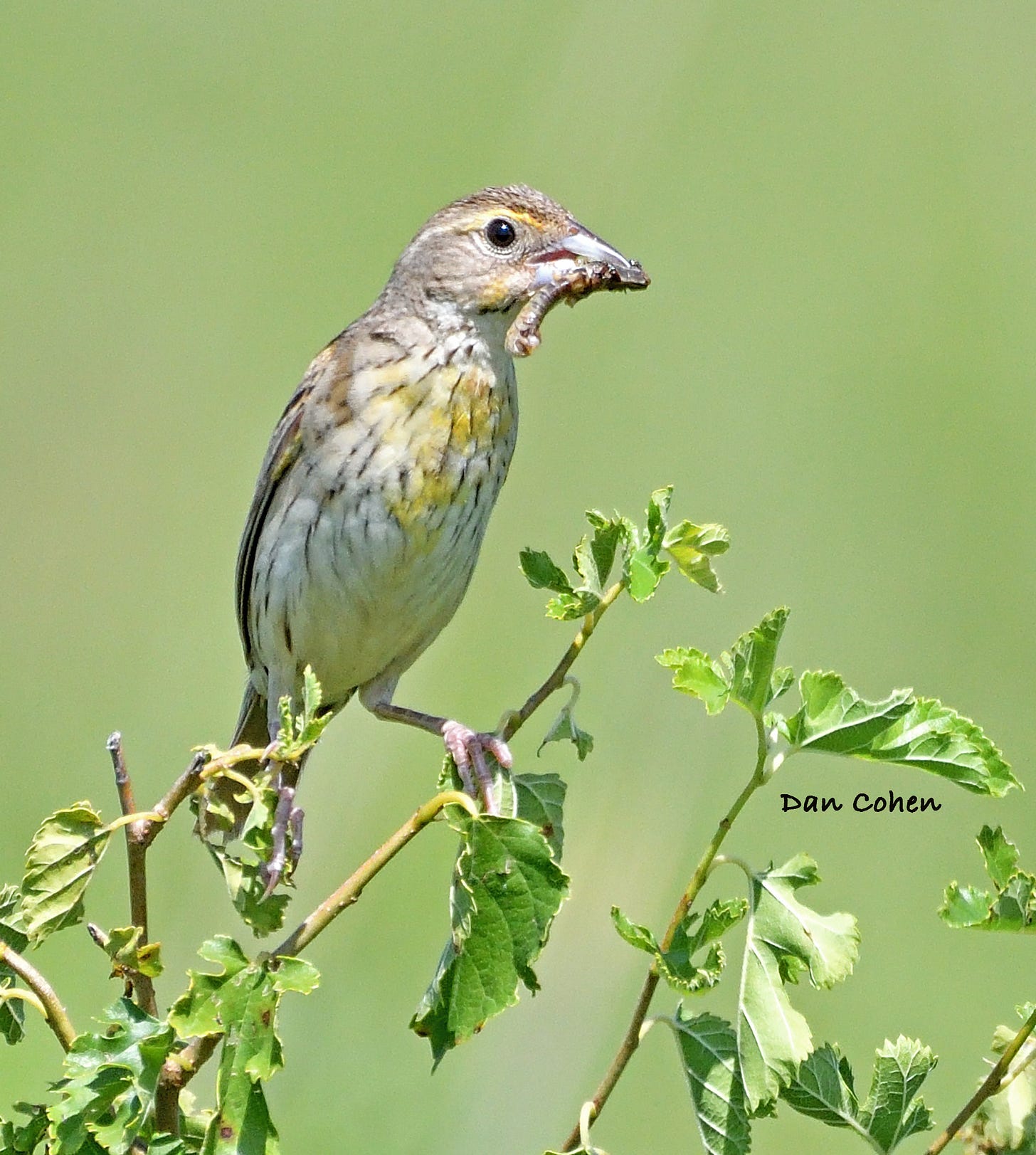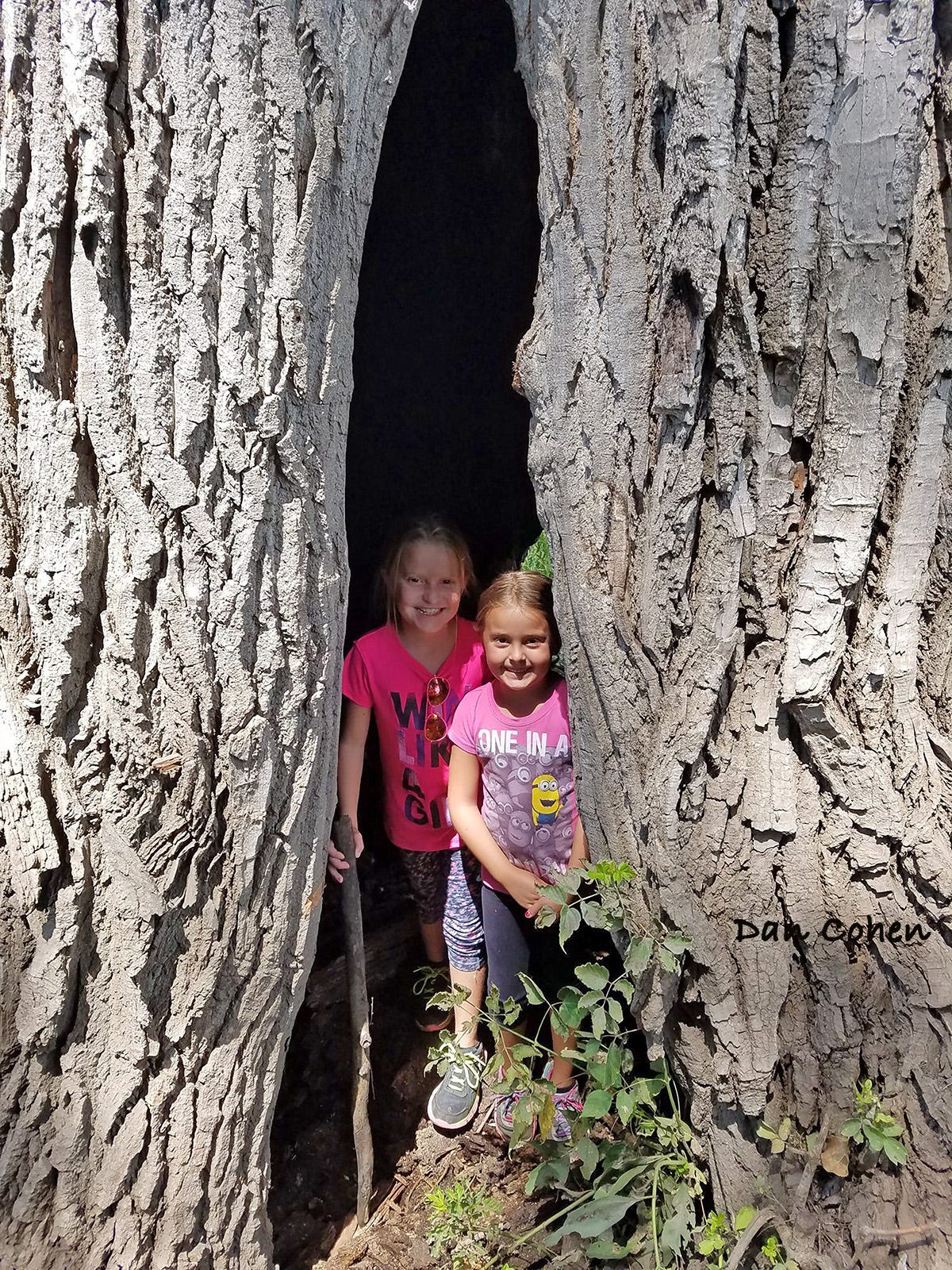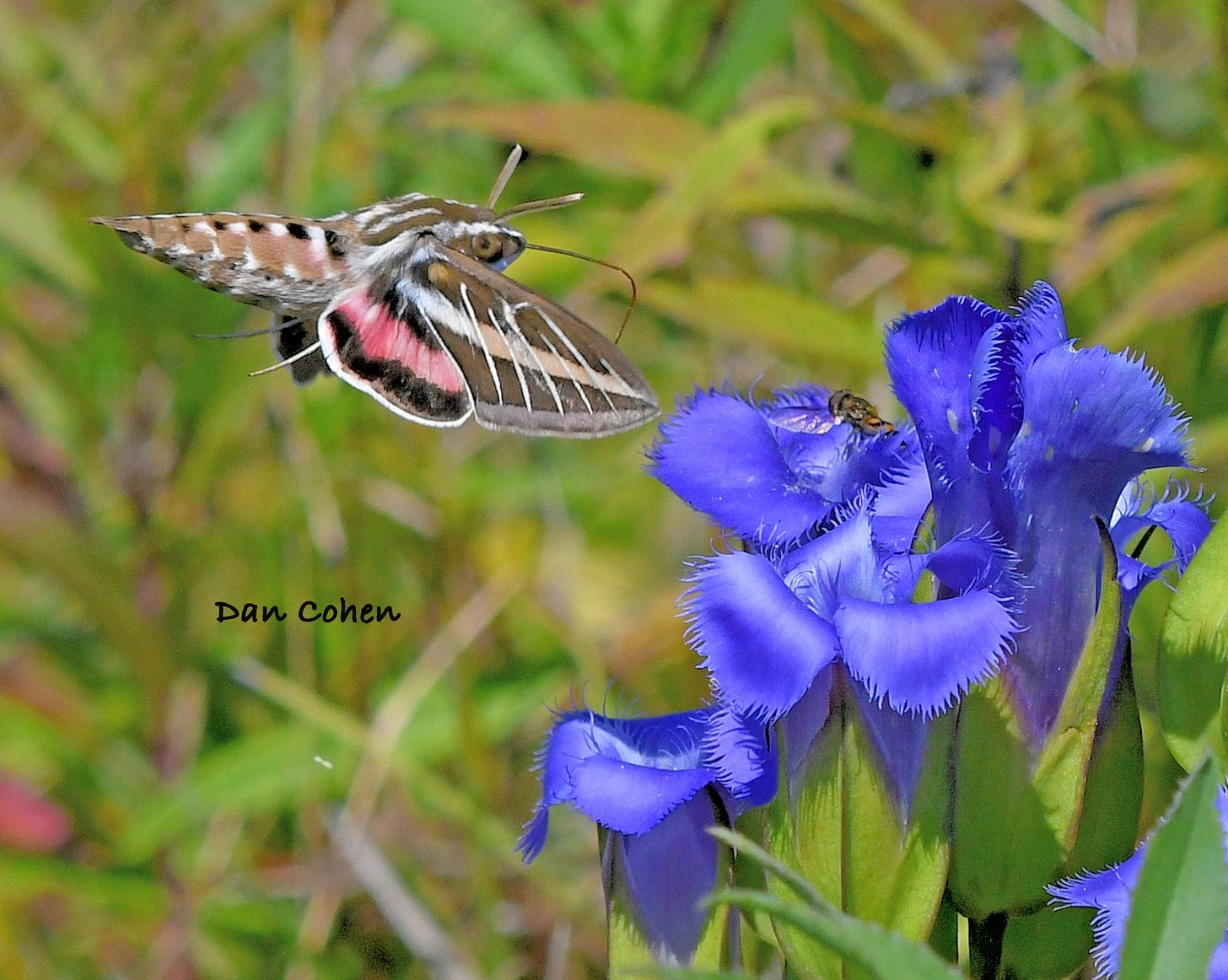Strengths of Diversity
Story and photos in support of biodiversity and broader meanings of diversity
“A woman working for the National Park Service in Colorado recently was told not to use the word ‘diversity’ at work,” a friend told me as we waited for the start of a ZOOM meeting. “She works as a naturalist, and now can’t make statements on species diversity.” As we continued our conversation, he said, “I wonder what this would mean for the Iowa DNR’s Wildlife Diversity Program, if such an edict were to land in this state.”
This anecdote is disturbing in MANY ways. First, because species diversity is a very important concept within natural sciences and the framework of natural systems, and we need our DNR to make biodiversity a key element in wildlife management. It also is an example of a trend of censorship and diabolical misconstruing of scientific language for political purposes that has reached Orwellian proportions, with potential ramifications that can’t be ignored. Diversity is among the most important aspects of nature, comprises our human culture and civilization, and leaves this country in a better place for future generations.

For this article, I’ll concentrate on the importance of diversity in the natural world (using the term “biodiversity”) and then will provide some thoughts on diversity’s broader socio-political importance.
Biodiversity is nature
Nature and wildness largely are defined by the diversity of plant and animal species in a given area. Natural cycles, whether they be the cycling of carbon and oxygen, food chains, life cycles, and the very “web of life”, are maintained through activities and functions of various plant, animal, and other life forms. Healthy soils, clean water, stable communities, and abundant wildlife require adequate biodiversity. The understanding of this requirement is both complex and simple. Every species requires other species for their food, often for their shelter, and collectively for clean water and a functioning hydrology. This has long been understood, and not just by Chief Seattle and other noble members of indigenous tribes. As stated by Thomas Jefferson,
“For if one link in nature's chain might be lost, another might be lost, until the whole of things will vanish by piecemeal.”

For example, a wetland is created when soil conditions allow for ponding and plant growth. The factors of soil formation include geology, organic material left by decaying life forms, and multitudes of fungal, bacteria, invertebrate, and other species. HEALTHY soils contain lots of biodiversity. Wetland plants take root in the biologically diverse, saturated soils or are free-floating on the water surface. Many plant species rely on pollinators to produce seeds, sometimes requiring specific species or groups of species. Other wildlife species may be tasked to help with seed dispersal. Plants (and some animals) slow, store, and cleanse water, with benefits asserted throughout the watershed and associated rivers. A variety of wildlife, such as frogs, waterfowl, cranes, songbirds, dragonflies, worms, crayfish, water beetles, turtles, snakes, hawks, muskrats, beavers, to name a few, soon occupy or visit the waters. Some lay eggs in the water or on the vegetation, or nest or make dens along the shorelines. They feed on the growing biodiversity of plants and animals.

Wetlands go through a succession cycle, slowly filling or becoming crowded with vegetation, and at times opening up and becoming more pond-like. These processes may result from the action of muskrats, beaver, and other wildlife that impact physical structure and species composition while feeding, hauling away plants, building dams and lodges, and making their waterway “road systems”. Waterfowl and other wildlife species are impacted by these changes while making migration stops or to meet their reproductive needs. It is complex, beautiful, and all-natural, and is just one, very simplified example of biodiversity at work. Biodiversity impacts natural communities of all types, across all landscapes, wherever people allow it to exist.
“A diverse ecosystem will also be resilient, because it contains many species with overlapping ecological functions that can partially replace one another. When a particular species is destroyed by a severe disturbance so that a link in the network is broken, a diverse community will be able to survive and reorganize itself... In other words, the more complex the network is, the more complex its pattern of interconnections, the more resilient it will be.”
– Fritjof Capra
Below - four of the many different species of dragonflies found at the 55-acre Ham Marsh in Buchanan County, Iowa. A diverse ecosystem contains many species with overlapping functions.
The “natural feel” we experience in the outdoors is a function of biodiversity – the trees, shrubs, mosses, lichens, and wildflowers of a woodland; the grasses and flowers of wind-blown prairies; diversely vegetated river corridors and wetlands with submerged, emergent, and free-floating plants. Add to this the near-constant sounds and sights of birds and insects, and the occasional encounter (or the known potential encounter) of reptiles, amphibians, and mammals, plus a degree of solitude, and, voila – we are immersed in nature. There is a direct correlation between the amount of biodiversity and the benefits received through nature. People need to get out of the house, away from concrete, and off the highways lined with monocultures of corn and soybeans (all examples of low biodiversity) to find their escapes into nature and wildness (defined by high biodiversity).
“In Wildness is the preservation of the World.”
Henry David Thoreau
The Tonic of Wildness
People need the tonic of wildness. The tonic aspect of this statement, famously written by Henry David Thoreau, has received a lot of study, and it is safe to say the physical and mental health benefits of being immersed in nature (and increased biodiversity) are substantial. Physical health aspects of nature and biodiversity seem obvious as people seek out natural places to hike, walk, bike, fish, hunt, snowshoe, or otherwise be physically active. Indeed, there are strong correlations between access to nature and reduction in occurrences of obesity, type 2 diabetes, heart disease, and other maladies. A study conducted in Iowa, just released in March, concluded that if access to nature were expanded by 10 percent, the state could save approximately $80 million in annual healthcare costs, including $19 million in Medicaid expenditures. Health benefits associated with biodiversity are real, and include positive psychological and cognitive impacts perhaps even to higher degree than to physical health.
“There is mounting evidence, from dozens and dozens of researchers, that nature has benefits for both physical and psychological human well-being,” says Lisa Nisbet, PhD, a psychologist at Trent University in Ontario, Canada, who studies connectedness to nature. “You can boost your mood just by walking in nature, even in urban nature.” It is more than just peoples’ moods that are affected. Nature and biodiversity have implications for learning. (Source)
A compilation of scientific studies published in a 2019 edition of ScienceAdvances revealed several consensus conclusions about benefits of nature experiences to mental health, including positive effects on:
· happiness and subjective well-being
· social interactions, cohesion, and engagement
· a sense of meaning and purpose in life
· manageability of life tasks
· decreased mental distress
· cognitive function
· memory and attention
· impulse inhibition
· children’s school performance
· imagination and creativity

We diminish biodiversity at our own peril
In addition to biodiversity providing beauty, sound, and a lifetime of interest; the “free services” of flood control, soil health, and cleaner water; and the tonic of wildness; it also has offered people a worldwide pharmacy and source for scientific discovery throughout our own species’ history. Humans continue to benefit from the collection of genetic traits that are magnified in relationship to the degree of biodiversity on our planet. Retaining biodiversity may be key to our existence. Aldo Leopold explained this well more than 75 years ago,
“The last word in ignorance is the man who says of an animal or plant, "What good is it?" If the land mechanism as a whole is good, then every part is good, whether we understand it or not. If the biota, in the course of eons, has built something we like but do not understand, then who but a fool would discard seemingly useless parts? To keep every cog and wheel is the first precaution of intelligent tinkering.”
― Aldo Leopold, Round River: From the Journals of Aldo Leopold
There are many threats to biodiversity - loss and degradation of habitats, invasive species that supplant more diverse native species, and pollution of land and water, to name a few. As scientists and naturalists have long warned, we destroy or allow the loss of wild species to occur at our own peril:
“Look closely at nature. Every species is a masterpiece, exquisitely adapted to the particular environment in which it has survived. Who are we to destroy or even diminish biodiversity?”
E. O. Wilson
The value of biodiversity is that it makes our ecosystems more resilient, which is a prerequisite for stable societies; its wanton destruction is akin to setting fire to our lifeboat.
Johan Rockstrom
The wealth of the nation is its air, water, soil, forests, minerals, rivers, lakes, oceans, scenic beauty, wildlife habitats and biodiversity... that's all there is. That's the whole economy. That's where all the economic activity and jobs come from. These biological systems are the sustaining wealth of the world.
Gaylord Nelson
Biodiversity is the totality of all inherited variation in the life forms of Earth, of which we are one species. We study and save it to our great benefit. We ignore and degrade it to our great peril.
E. O. Wilson

A few thoughts about the politics of diversity
It is strange that we exist in a time and place where diversity is being used as a politically divisive tool. There are serious attacks on biodiversity to be sure. The Trump Administration, armed with control of Congress and the lion’s share of the Supreme Court, is intent on sale and degradation of public lands which include a large portion of our nation’s biodiversity. The Endangered Species Act is under assault with proposed rules to eviscerated protections for the places where rare species exist. Polluters are being given new subsidies and allowances to degrade the environment through deregulation and reduced enforcement. There is, however, also a more generalized attack on the very concept of diversity as relates to the character and definition of the United States.
Diversity contributed to the dominance of the United States as a world leader, inventor, and economic powerhouse post World War II. Diversity of scientific thought, from an influx of scientists from around the world, flourished in our country and led to the United States becoming a military super power, won the space race, advanced our technological advantage, and made us more innovative. Diversity, drawn from unique communities and people across our country, has provided the athletes that win Olympic games and fill rosters in professional sports. Music, movies, and other arts flourished. Other countries couldn’t compete with the United States’ diversity of thoughts, skills, and talents.

Diverse thoughts and cultures didn’t come to our country by accident. It was part of our national promise, unique among nations. It is why the Statue of Liberty stands near Ellis Island. Our world-class universities brought in diversity of thought and talent – the best and the brightest. Agriculture, manufacturing, and other industries took in refugees and other immigrants, providing them a chance for a better life and the rest of us with food, materials, and services at affordable prices. No other country could surpass the United States in its diversity, and this has been one of our greatest strengths. This is not to say there aren’t problems associated with managing this diversity. To be sure, immigration needs to be properly managed, people need to be treated fairly, and cultural issues need to be resolved, and this has not always happened. But, to recklessly lose our edge by discarding diversity because of a dislike of its management, to scapegoat “others”, or to otherwise score political points, is akin to “throwing away the baby with the bathwater”.
As indicated in the anecdote at the start of this article, there now is a war on language seeking to stifle government workers’ use of words and terms, such as “diversity”, “equity”, and “climate change”, even in the benevolent example of simply educating people about natural systems. It is as if to say, if we erase these words, diverse thoughts and cultures, the desire for people to be treated equitably, and the scientific facts and dangers of climate change will all just go away. Do people really prefer to live in a less diverse, less equitable, less inclusive country that is more prone to fires, floods, loss of life and property, and depleted biodiversity? It has recently been reported that the FBI now is using polygraph tests to identify employees who may have wrong-thinking – having said or thought things critical of Department Heads or the President. In the past, such tests were used for only serious or illegal conduct or betrayal to the country, not to stamp out thoughts or speech. The result of such actions is to plant a thought monoculture with people afraid to speak.
Our country needs diversity of species and within species, including Homo sapiens.
“To many people, 'biodiversity' is almost synonymous with the word 'nature,' and 'nature' brings to mind steamy forests and the big creatures that dwell there. Fair enough. But biodiversity is much more than that, for it encompasses not only the diversity of species, but also the diversity within species.”
Cary Fowler








What Dan said…🙂👍. Thanks!
As always, brilliant points & outstanding photos. Thanks Dan!